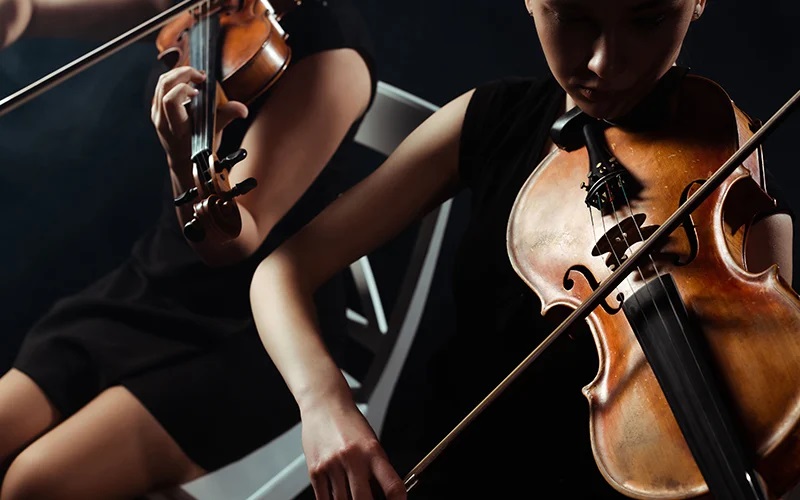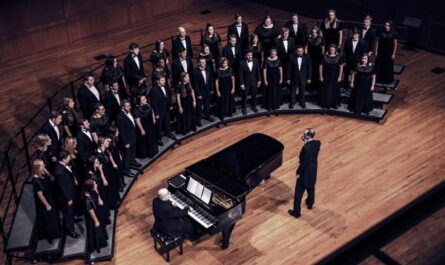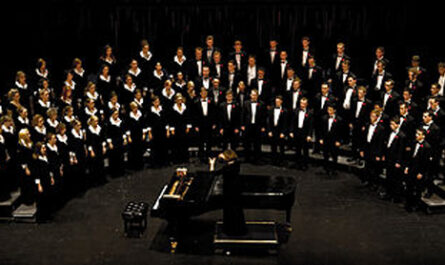Great Classical Music composers
Classical music is one of the most enduring and influential genres of music in the world. With a rich history spanning centuries, classical music has evolved and adapted to changes in culture, technology, and society. From the earliest compositions to the most recent works, classical music has remained a beloved and important part of the world of music and culture.
Classical music is a type of music that originated in Europe during the 18th century. It is a genre of music that is defined by its complexity and structure, with compositions typically consisting of multiple movements of varying lengths. Classical music is often associated with orchestral performances and is characterized by its use of instruments such as the piano, violin, cello, and flute.
Classical music has a rich history that spans centuries, with its roots dating back to the Renaissance period. Over time, classical music has evolved and adapted to changes in culture, technology, and society. Today, classical music remains an important part of the world of music and culture, with millions of people around the world still enjoying its beauty and complexity.
The Origins of Classical Music
Classical music has its roots in the music of the Renaissance period, which lasted from the 14th to the 17th century. During this time, music was primarily vocal, with composers creating works for choirs and vocal ensembles. It was during the Baroque period, which lasted from the 17th to the early 18th century, that classical music began to take shape.
During the Baroque period, composers such as Johann Sebastian Bach and George Frideric Handel began to experiment with new forms of music, including the concerto and the sonata. These forms would later become staples of classical music. It was also during this time that the orchestra began to take shape, with composers writing works for large ensembles of instruments.
The Classical period, which lasted from the mid-18th to the early 19th century, saw the rise of new forms of music, such as the symphony and the string quartet. Composers such as Wolfgang Amadeus Mozart and Ludwig van Beethoven became famous for their works in these new forms. The Romantic period, which followed the Classical period, saw composers such as Franz Schubert and Frederic Chopin pushing the boundaries of classical music even further.
Famous Composers
Classical music has produced some of the most famous composers in history. Some of the most well-known composers include Johann Sebastian Bach, Wolfgang Amadeus Mozart, Ludwig van Beethoven, Frederic Chopin, and Franz Schubert.
Johann Sebastian Bach was a German composer who lived during the Baroque period. He is known for his intricate and complex compositions, such as his famous Goldberg Variations. Wolfgang Amadeus Mozart was an Austrian composer who lived during the Classical period. He is known for his operas, symphonies, and chamber music, such as his famous Symphony No. 40.
Ludwig van Beethoven was a German composer who lived during the late Classical and early Romantic periods. He is known for his powerful and emotional compositions, such as his famous Ninth Symphony. Frederic Chopin was a Polish composer who lived during the Romantic period. He is known for his works for the piano, such as his famous Nocturnes.
Franz Schubert was an Austrian composer who lived during the Romantic period. He is known for his songs, such as his famous Winterreise. Each of these composers made a significant contribution to the world of classical music, and their works continue to be celebrated and performed to this day.
Musical Forms and Styles
Classical music is a genre that encompasses a wide variety of musical forms and styles. Some of the most popular types of classical music include Baroque, Classical, Romantic, and Modern.
Baroque music is characterized by its complex and intricate compositions, often featuring the harpsichord and other keyboard instruments. Some of the most famous Baroque composers include Johann Sebastian Bach and George Frideric Handel.
Classical music is characterized by its balance and symmetry, with composers often using simple and clear structures. Some of the most famous Classical composers include Wolfgang Amadeus Mozart and Ludwig van Beethoven.
Romantic music is characterized by its emotion and expressiveness, often featuring lush harmonies and sweeping melodies. Some of the most famous Romantic composers include Frederic Chopin and Franz Schubert.
Modern classical music is characterized by its experimentation and innovation, often incorporating elements of other genres of music such as jazz and rock. Some of the most famous Modern composers include Igor Stravinsky and Arnold Schoenberg.
Instruments Used in Classical Music
Classical music is often associated with orchestral performances, and the genre relies heavily on a wide variety of instruments. Some of the most commonly used instruments in classical music include the piano, violin, cello, flute, and trumpet.
The piano is one of the most important instruments in classical music, and it is often used as a solo instrument or as part of an orchestra. The violin is another important instrument in classical music, and it is often used as a solo instrument or as part of a string quartet.
The cello is a lower-pitched string instrument that is often used to provide a rich and warm sound to classical music compositions. The flute is a high-pitched woodwind instrument that is often used to provide a light and airy sound to classical music compositions. The trumpet is a brass instrument that is often used to provide a bright and powerful sound to classical music compositions.
How to Appreciate Classical Music
For those new to classical music, it can be difficult to know where to start. However, with a little guidance, anyone can learn to appreciate classical music. One of the best ways to start is by listening to popular works by famous composers such as Mozart and Beethoven.
When listening to classical music, it is important to pay attention to the melody, harmony, and rhythm. It is also important to listen to the dynamics and timbre of the instruments, as these elements can greatly affect the overall mood and tone of a composition.
Another way to appreciate classical music is to attend live performances. Many cities have orchestras and other classical music ensembles that perform regularly. Attending a live performance can be a great way to experience the power and beauty of classical music in person.
The Importance of Classical Music
Classical music is an important part of the world of music and culture. It has influenced other genres of music, such as jazz and rock, and has shaped the cultural landscape in important ways. Classical music has also been shown to have a positive effect on the brain, with studies showing that listening to classical music can improve cognitive function and reduce stress.
Classical music has also played an important role in the development of music education. Many schools and universities offer courses in classical music, and classical music education has been shown to have a positive effect on students’ academic performance.
Classical Music Today
Despite its long history, classical music remains relevant today. Classical music is still being composed, performed, and enjoyed by people all over the world. Many orchestras and classical music ensembles have adapted to changes in technology and society, using social media and other platforms to reach new audiences.
The future of classical music is bright, with new composers and performers emerging all the time. As technology continues to evolve, classical music will continue to adapt and change, remaining an important part of the world of music and culture.
Famous Classical Music Performances
Classical music has produced some of the most famous performances in history. From the premiere of Beethoven’s Ninth Symphony to the debut of Stravinsky’s Rite of Spring, classical music performances have had a significant impact on the world of music.
One of the most famous classical music performances of all time is the premiere of Beethoven’s Ninth Symphony in 1824. The performance, which took place in Vienna, was conducted by Beethoven himself and featured a choir and soloists. The final movement of the symphony, which features the famous “Ode to Joy” chorus, is one of the most recognizable pieces of classical music in the world.
Classical Music Education
Classical music education is an important part of the development of young musicians. Many schools and universities offer courses in classical music, and classical music education has been shown to have a positive effect on students’ academic performance.
There are many different ways in which classical music can be taught and integrated into different subjects. For example, teachers can use classical music to teach history, literature, and even science. By incorporating classical music into different subjects, students can gain a deeper appreciation and understanding of the genre.
Case Study: The Transformative Power of Classical Music Education

Classical music education has the power to transform lives and provide opportunities for personal and academic growth. A prime example of this is the story of Sarah Johnson, a high school student who discovered her passion for classical music through an educational program at her school.
Sarah grew up in a low-income neighborhood where access to music education was limited. However, her school implemented a classical music program that offered free lessons and ensemble opportunities to students. Intrigued by the sound of the violin, Sarah decided to give it a try.
Under the guidance of her dedicated music teacher, Mr. Thompson, Sarah quickly developed a love for classical music. She spent hours practicing her instrument, immersing herself in the works of composers like Bach and Mozart. Through her participation in the school orchestra, Sarah learned the importance of teamwork, discipline, and perseverance.
As Sarah’s musical skills grew, so did her confidence and academic performance. She discovered that the skills she learned through classical music, such as critical thinking, problem-solving, and attention to detail, transferred to other areas of her life. With newfound determination, she excelled in her academic studies and became a role model for her peers.
Recognizing Sarah’s talent and dedication, Mr. Thompson encouraged her to audition for a prestigious music conservatory. With his guidance and support, Sarah successfully gained admission and received a scholarship to pursue her passion.
Today, Sarah is a professional violinist, performing with renowned orchestras around the world. She credits classical music education for transforming her life and providing her with opportunities she never thought possible. Sarah also gives back to her community by teaching violin lessons to underprivileged students, just as Mr. Thompson once did for her.
Sarah’s story is a testament to the transformative power of classical music education. It not only ignited her passion for music but also instilled in her valuable life skills that have shaped her into the successful individual she is today. Through access to quality music education, countless students like Sarah can discover their potential and change their lives for the better.
Classical Music and Society
Classical music has played an important role in society throughout history. It has been used in different cultural contexts, from religious ceremonies to political events. Classical music has also been used to promote social change, with composers such as Beethoven and Shostakovich using their music to express their political views.
Today, classical music continues to play an important role in society. It is often used in movies and television shows to create a certain mood or tone, and it is often played at important cultural events such as weddings and funerals.
Classical Music and Technology
Technology has had a significant impact on classical music. With the advent of recording technology, classical music has become more accessible to people all over the world. Today, people can listen to classical music on their phones, computers, and other devices.
Technology has also changed the way classical music is composed and performed. Composers are now able to use computer software to create and edit their compositions, and performers are able to use digital tools to enhance their performances.
Classical Music Around the World
Classical music has had a global influence, with different cultures interpreting and adapting classical music in unique ways. For example, Indian classical music has its own unique style and structure, while Chinese classical music often incorporates traditional instruments such as the guzheng and erhu.
Classical music has also played an important role in world music, with many musicians incorporating elements of classical music into their compositions. For example, jazz musicians such as Duke Ellington and John Coltrane have been heavily influenced by classical music.
Conclusion
Classical music is one of the most enduring and influential genres of music in the world. With a rich history spanning centuries, classical music has evolved and adapted to changes in culture, technology, and society. From the earliest compositions to the most recent works, classical music has remained a beloved and important part of the world of music and culture. Whether you are a seasoned classical music fan or a newcomer to the genre, there is always something new to discover and appreciate in the world of classical music.




